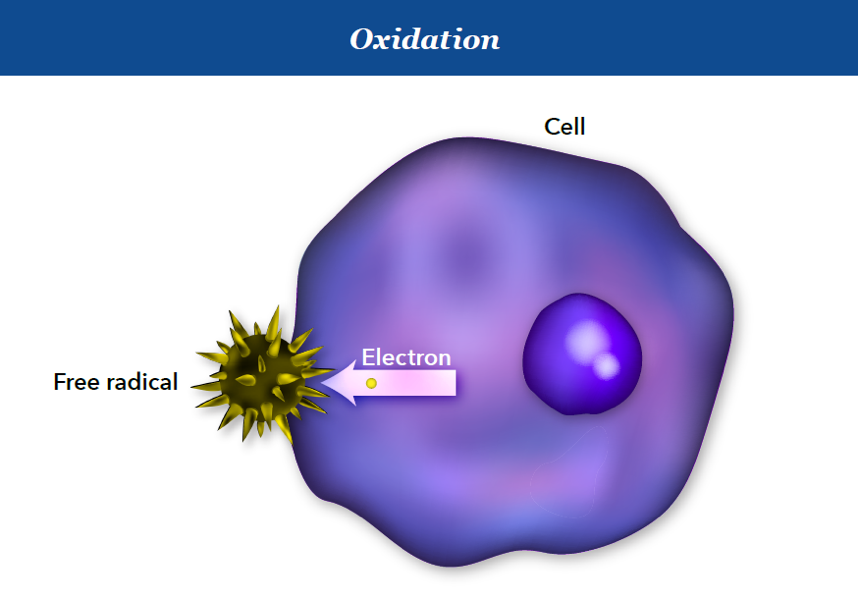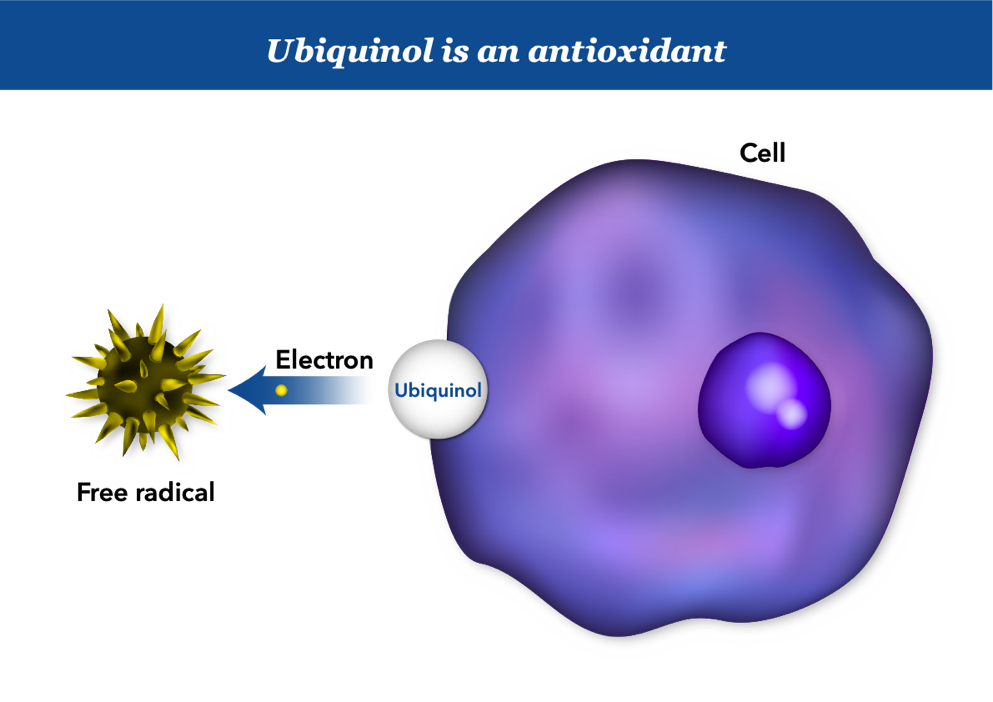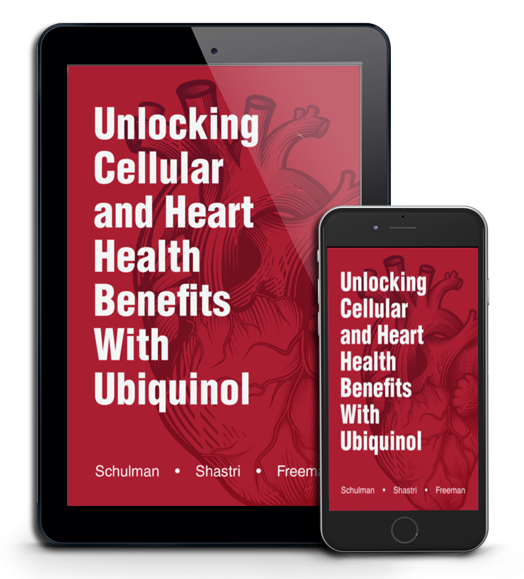Ubiquinol supports the body’s cellular energy production and acts as an antioxidant1-3
Ubiquinol plays a supporting role in cellular energy production
-
The mitochondria are responsible for producing 95% of the energy in the cells (aerobic metabolism), and Ubiquinol plays a critical role in the process, shuttling electrons4
- CoQ10 is a member of the electron transport chain1
- When CoQ10 receives electrons, the structure changes and it becomes Ubiquinol, the active form of CoQ10. The body converts CoQ10 to Ubiquinol as a step in the redox (reduction/oxidation) cycle1
-
Ubiquinol then passes the electrons to other parts of the chain, resulting in the production of ATP (adenosine triphosphate), a molecule that stores and transfers energy in cells1,5
- In this way, Ubiquinol plays a key role in creating cellular energy for organs and muscles, including the heart and the brain1
Ubiquinol is a potent antioxidant, defending against damage to cells
- Ubiquinol acts as an antioxidant and protects cells from the oxidative stress caused by free radicals, due to the extra electrons it carries5,6

- Free radicals steal electrons, resulting in a damaged, unhealthy cell7

- Ubiquinol donates an electron to neutralize a free radical, protecting the body’s cells from oxidation7
- Ubiquinol then converts to CoQ10 at this point of the redox (reduction/oxidation) cycle
- An enzyme reaction later converts CoQ10 back into Ubiquinol
- Ubiquinol has the ability to regenerate the antioxidants Vitamin C and Vitamin E6
- Ubiquinol is a more efficient antioxidant than Vitamin E in fighting free radicals and protecting against lipid peroxidation3,6,8
Ubiquinol is different from Vitamin C, Vitamin E and other antioxidants
- Ubiquinol’s antioxidant properties are different from those of Vitamin C, resveratrol and green tea because Ubiquinol is lipid-soluble and acts in the lipid parts of the body (such as cell membranes, including mitochondrial membranes where free radicals are located), whereas Vitamin C, resveratrol and green tea are water-soluble and do not act in these areas
- While Vitamin E acts in the lipid parts of the body, it is not as powerful than Ubiquinol. Vitamin E must be regenerated by Ubiquinol, whereas Ubiquinol is self-generating3,9
Consider recommending Ubiquinol
- Ubiquinol plays a role in creating cellular energy for organs and muscles, including the brain and the heart1
- Ubiquinol helps to protect healthy cells from damage5,6
References
- Becker WM, Deamer DW. The World of the Cell, 2nd ed. Redwood City, CA: Benjamin-Cummings Publishing Company, Inc; 1991.
- Tomasetti M, Alleva R, Collins AR. In vivo supplementation with coenzyme Q10 enhances the recovery of human lymphocytes from oxidative DNA damage. FASEB J. 2001;15(8):1425-1427.
- Mohr D, Bowry VW, Stocker R. Dietary supplementation with coenzyme Q10 results in increased levels of ubiquinol-10 within circulating lipoproteins and increased resistance of human low-density lipoprotein to the initiation of lipid peroxidation. Biochim Biophys Acta. 1992;1126(3):247-254.
- Martini FH. Muscle tissue. In: Fundamentals of Anatomy and Physiology. Prentice Hall, Inc. Upper Saddle River, NJ. 1999.
- Forsmark-Andrée P, Ernster L. Evidence for a protective effect of endogenous ubiquinol against oxidative damage to mitochondrial protein and DNA during lipid peroxidation. Mol Aspects Med. 1994;15(suppl 1):S73-S81.
- Ernster L, Forsmark- Andrée P. Ubiquinol: an endogenous antioxidant in aerobic organisms. Clin Investig. 1993;71(suppl 8):S60-S65.
- Lobo V, Patil A, Phatak A, Chandra N. Free radicals, antioxidants and functional foods: impact on human health. Pharmacogn Rev. 2010;4(8):118-126.
- Stocker R, Bowry VW, Frei B. Ubiquinol-10 protects human low density lipoprotein more efficiently against lipid peroxidation than does alpha-tocopherol. Proc Natl Acad Sci USA. 1991;88(5):1646-1650.
- Frei B, Kim MC, Ames BN. Ubiquinol-10 is an effective lipid-soluble antioxidant at physiological concentrations. Proc Natl Acad Sci USA. 1990;87:4879-4883.
Be a heart health INSIDER.
Sign up to receive news, updates and special offers on heart health and Ubiquinol.
You can unsubscribe at anytime. Privacy Policy
Request patient samples of Ubiquinol.
Getting samples is easy—just fill out our online form.

